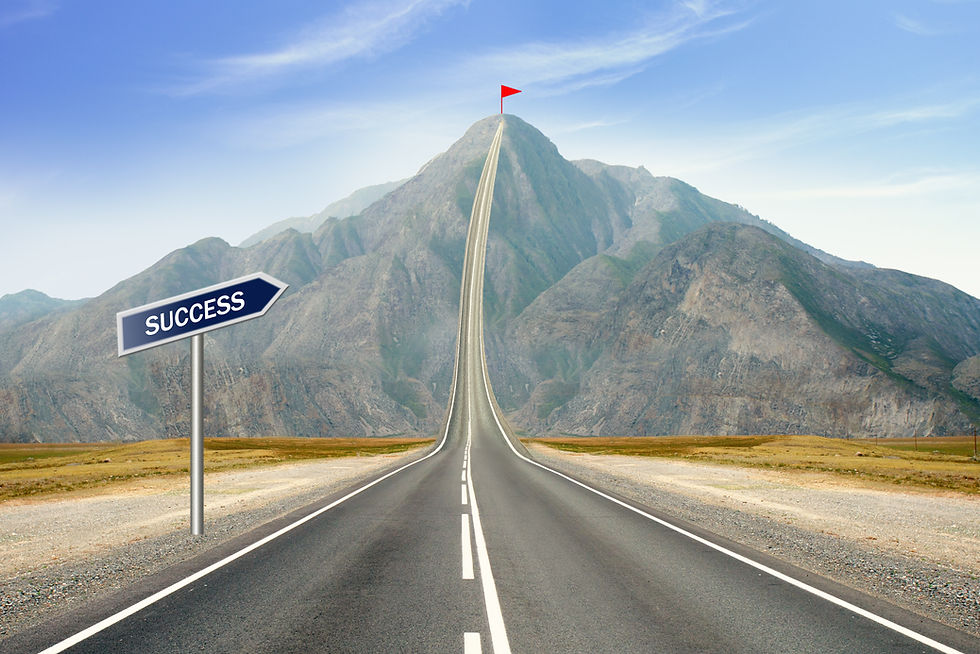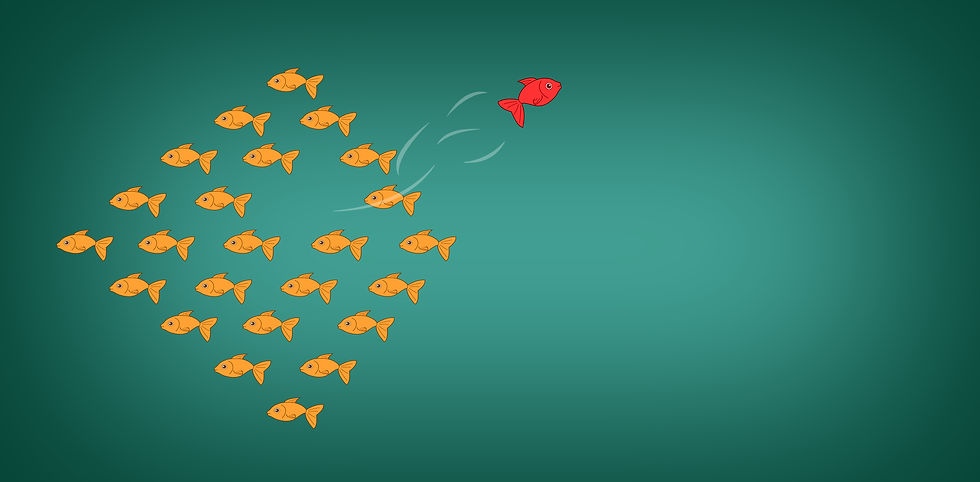True Entrepreneurs Dare
- prempothina
- Sep 25, 2021
- 5 min read

All businessmen are not entrepreneurs, only a few are. The businessman hunts for shortcuts and is intimidated by failures, adversity and unpropitious circumstances. Whereas the entrepreneur is unfazed, he dares to fail. The businessman’s agenda is to make money only for himself, whereas the entrepreneur builds wealth for all the players involved in the enterprise, including his competitors. The common factor between the soldier, the farmer and the entrepreneur is the tenacity to survive despite all odds. They are undaunted by any uphill task, even if the path is rugged. Just like the soldier and the farmer, the entrepreneur too pledges his life for the nation. All the three face challenges every day and their intelligence sharpens with every single struggle. Nassim Nicholas Taleb, an author, statistician and a risk analyst, states that, “Difficulty is what wakes up a genius.”
One cannot be an entrepreneur by banking on others’ efforts and ideas, they have to evolve from within to be original. Thomas Alva Edison, a scientist and an entrepreneur, once said, "I have not failed. I just found 10,000 ways that won’t work.” For some businessmen, failure and risk are bad words. I always wanted to be an entrepreneur as good as my peers and whenever I started a business, it started off being successful but eventually, over a period of time, they all failed miserably. After repeated failures, it dawned on me — at the age of 50 — that the enterprise should be unique and it should be based on inherent abilities. The reason for my failures was purely because they were never original ideas. But fortunately, the failures did not wear me down, I rectified my previous mistakes and put to practice some unique systems that other practitioners did not offer in the legal profession. Right from my own legal battle till now, the instinct to survive has prevailed, which, in fact, is not easy to cope with or comprehend. It needs a lot of mental fortitude.

The other factor is trust, which has to be liberal, unless you have pistanthrophobia — the fear of trusting people. The true entrepreneur will never compromise for anything less than what he has dreamt about and he is very concerned for people around him and the society has limitless boundaries, so also his trust. I have found that if any person has the inherent quality of an entrepreneur, he could convert any occupation, job, profession and family into success. Trust is another form of risk and the real entrepreneur is identified by the height of risks he takes. He revolutionises his way of living by visualising the future. I have seen people who claim to be entrepreneurs but have ultimately failed to survive as one, the main reason being that their enterprise was not within the ecosystem of give and take.

On 19th November, 1929, the famous Aga Khan offered a prize of £500 to the first Indian who could fly solo between England and India and should be completed within 6 weeks from the date of starting. The contest was started on 1st January, 1930, and was open for the whole year. There were only three contestants. The first competitor was a young Manmohan Singh, a maverick Sikh who took off from the Croydon Airport in London but had to return to base after getting lost in the fog. He attempted it twice thereafter but couldn’t succeed. The second contestant was an eighteen-year-old Aspy Engineer and the third contestant was JRD Tata, who took off from Juhu Bombay for Karachi, confident that he would win the race. Before his first stop, JRD found that the ground engineer at Juhu, despite his repeated instructions, did not rectify the compass that he was doubtful of and because of it, he was off course by about 100 miles from the planned route. JRD stopped at Karachi and started again on 3rd May, then headed to Gwadar, then to Jask and stopped at Rutbah. From there, JRD took off on 6th May and reached, after several stops, the Cairo RAF aerodrome from where he was directed to Aboukir in Alexandria. With the help of the ground engineer at Aboukir, he finally got his compass repaired.
At Alexandria, JRD noticed another Moth parked and was informed that it was his competitor Aspy, who later came and greeted JRD. When he heard that Aspy was waiting for spare spark plugs, JRD willingly gave away four of his spares to Aspy, who was overjoyed and grateful. On 11th May, Aspy was declared the winner for having completed the race in six weeks as per the rules — he reached Karachi a few hours before JRD reached England. JRD was obviously disappointed that he lost the race, but he expressed his immense joy that Aspy Engineer won. Later, Aspy was selected into the Royal Air Force and, subsequently, he became the second Indian to be Chief of the Air Staff of the Indian Air Force. Appreciating one’s competitors and encouraging them to win as well is a profound character of a true entrepreneur.

In 1929, Imperial Airways from London was delivering AirMail up until Karachi. At the same time, four weeks after he got his pilot licence, JRD Tata was in a meeting with Nevill Vintcent, a retired RAF pilot who was planning an AirMail service from Karachi to peninsular India, which materialised only on 24th April, 1932, after prolonged negotiations with the then Government of India. That is how Tata Airlines was born. There were only three pilots — Vincent as the Chief Pilot and Manager, the second was Homi Barucha and JRD himself as the third part-time pilot. The investment was ₹2 lakh and was tough to convince Mr Dorab, the then Chairman of Tata Sons. JRD himself travelled to England to purchase the two Puss Moth aircrafts from de Havilland. On October 15th, 1932, JRD, at the age of twenty eight, made history in Indian civil aviation by taking off in one of the Puss Moths from Drigh Road Airfield, Karachi, to Juhu Airport, Bombay via Ahmedabad, carrying the first AirMail. At Bombay, JRD handed over forty five pounds of mail and within twenty minutes, Nevill Vintcent took off in the second Puss Moth with forty seven pounds of mail for Madras and six pounds of mail for Bellary, where he stopped for refuelling. The most important feature of this venture by the Tatas is that it was the first airline in the world at that time to take off without the government’s support. JRD convinced the Chairman and the other Directors to take the financial risk. Later, in 1933,Tata Airlines extended its service from Bombay to Calcutta, Bombay to Madras and so on, and in 1936, inaugurated its first flight to Colombo. Those who have the instincts of an entrepreneur do not settle for sedentary or desk-bound routine jobs or occupation, he is always on the lookout for adventure and propounds out-of-box ideas. True entrepreneurs dare to forge into the future, whatever the risks.



Well siad Sir......
An entrepreneurial mindset is a set of skills that enable people to identify and make the most of opportunities, overcome and learn from setbacks, and succeed in a variety of settings.
A true entrepreneur is "ahead of the curve"